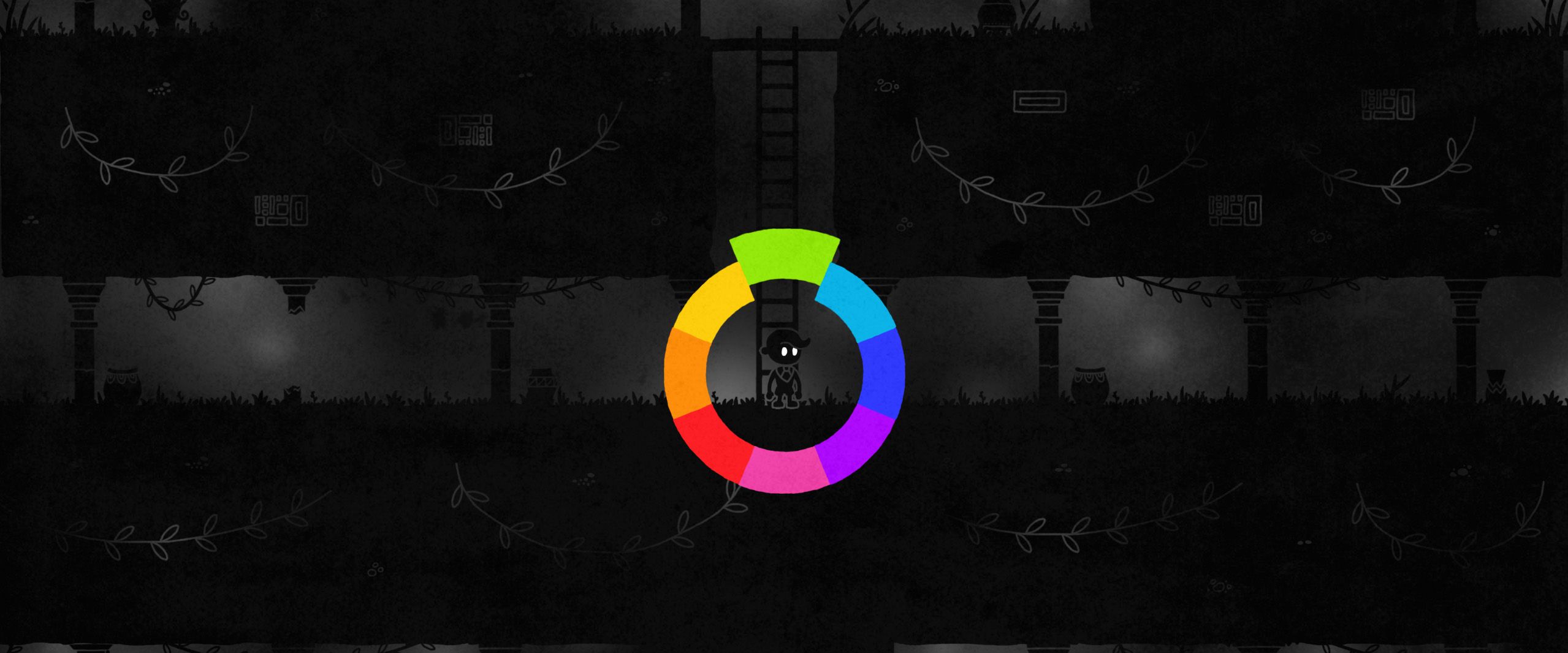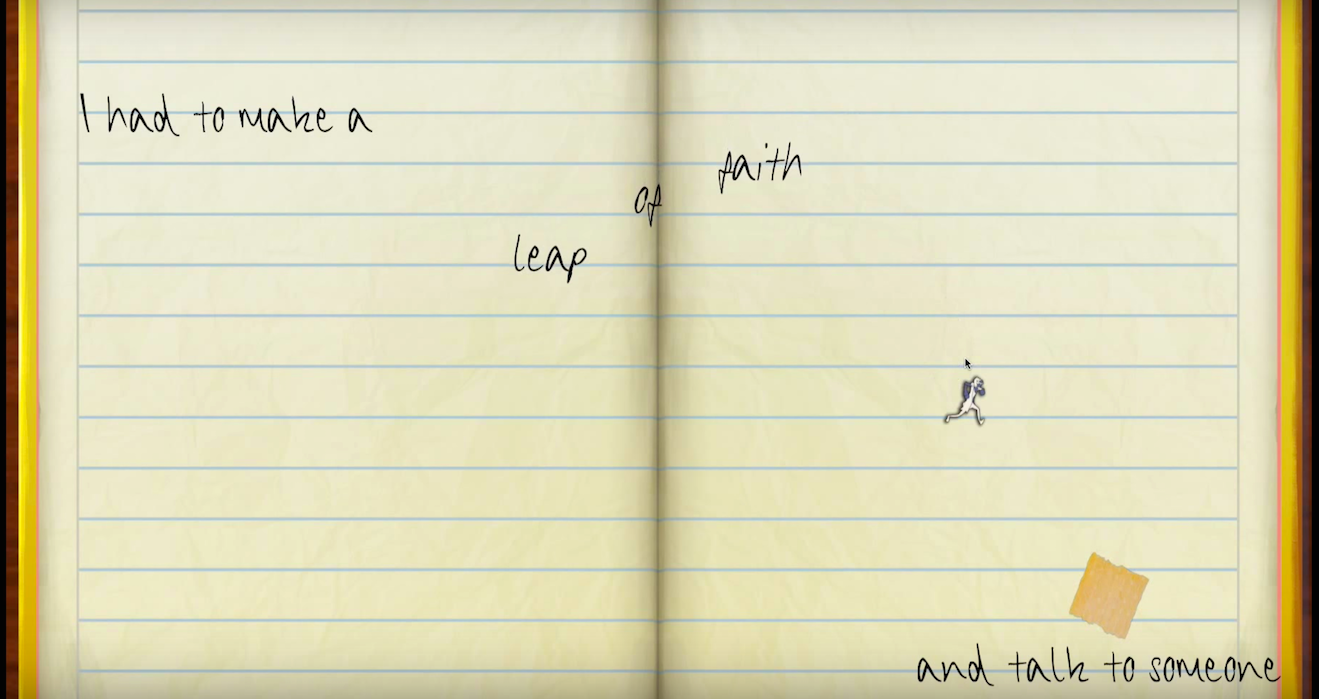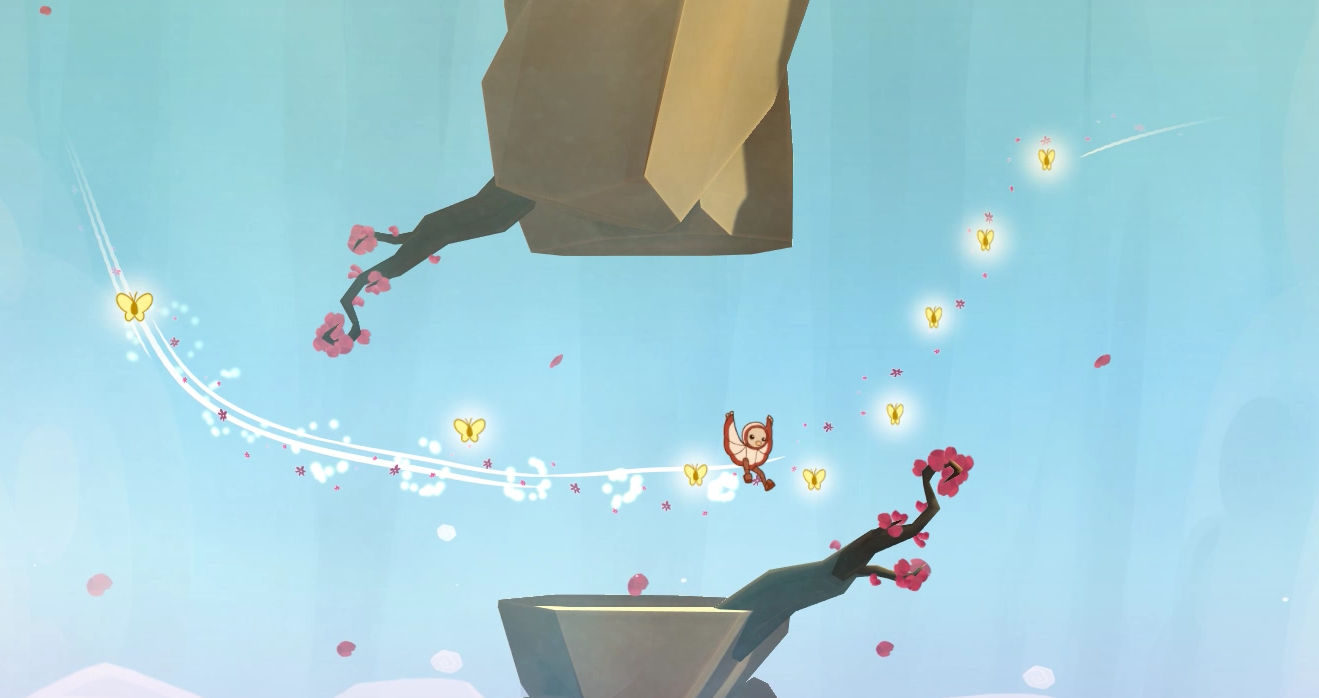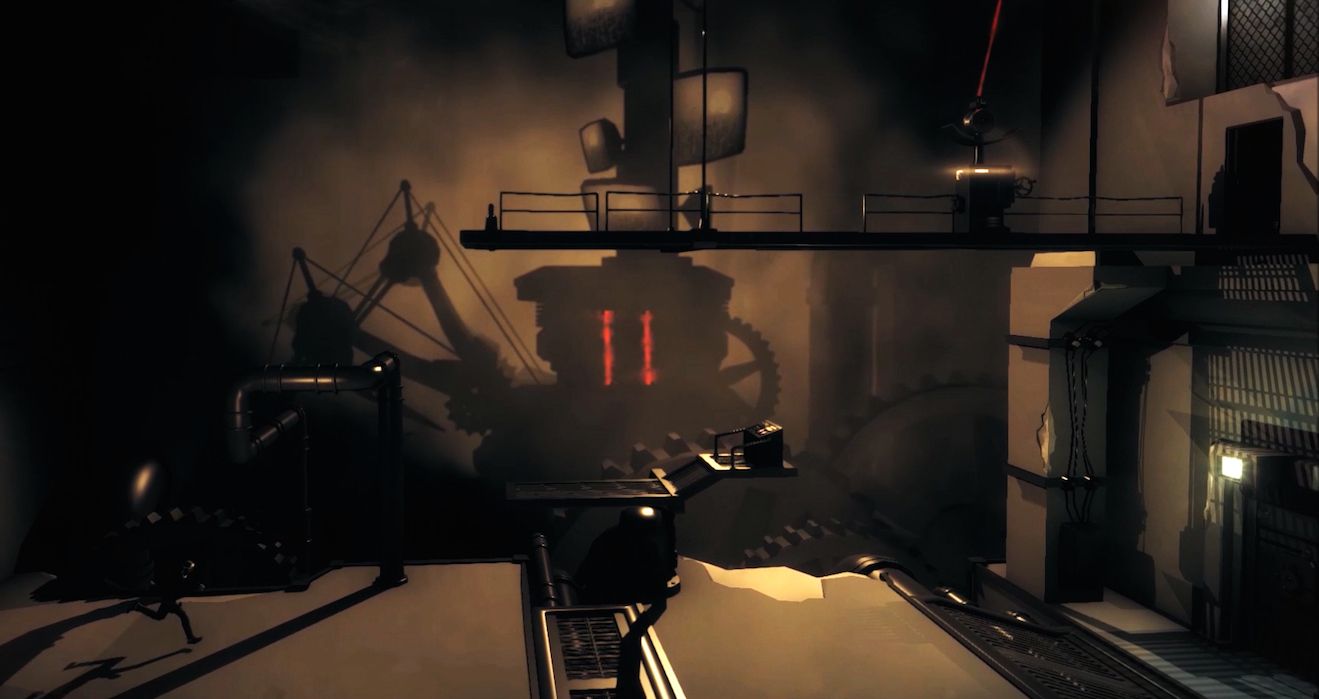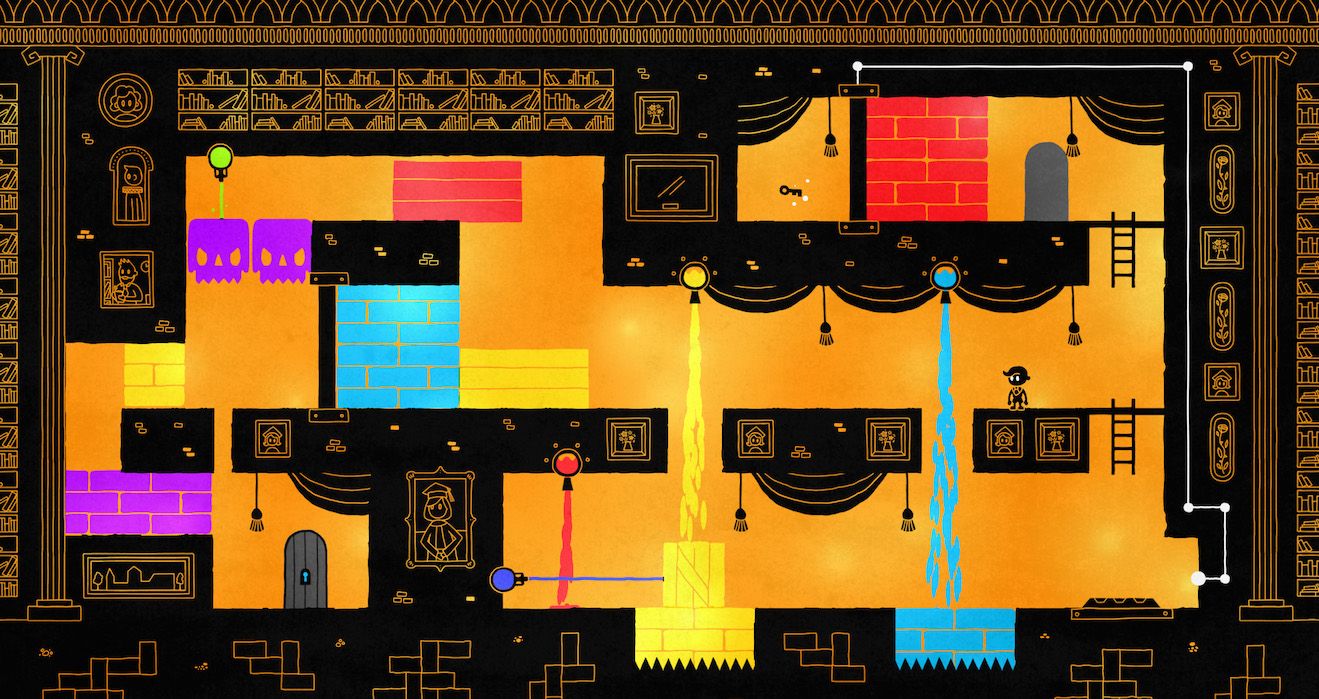Platformers have been one of the industry's longest-running -- and arguably most-acclaimed -- genres since the early days of making a certain Italian plumber jump across gaps and in-between brick-textured sections. It's only recently that "the platformer" has seen, like a lot of culturally-invested interests, its fair share of the rise/fall/resurrection cycle that often comes about as a result of early success followed by ample amounts of saturation which then finally paves the way for certain developers to actually stop and really consider the million-dollar question: "...but will my game stand out? I mean...really stand out?"
That's not to say some brand of uniqueness automatically equates to many a sale figure and/or some rowdy-if-pleased assortment of critics praising your very creation. Even the most stylistically unique and intriguing uses of gameplay can often fall by the wayside or...put simply...just end up not that good as a finished product. But in saying that, even if platformers have, you could argue, already had their Golden Age long before you and I could hurl abuse at each others' tastes -- and its accompanying Renaissance period in the mid-noughties helped televise the revolution of independent releases -- could it be viable that we're entering a third age for this most beloved of sub-genres? Third, not so much in the sense of a new start, but rather looking at proceedings from the perspective developers around the World are finally waking up to the idea that...yes...design is one thing, but it's the actual feeling of playing -- the experience of it all -- that truly sets the Limbo's & the Braid's apart from the crowd.
So without further ado, let me introduce to you a few upcoming titles, pertaining to the platforming cornerstone, of which I felt stood out in from that of judging the gameplay...as much actually playing it.
The Last Word (Fourth State)
It's inevitable that you stumble upon a title you had next-to-no knowledge of coming into a grand assemble of varying ideas and similarly stark contrasts in aesthetics that is EGX Rezzed. The Last Word by UK-based Fourth State is immediately eye-catching for the way -- even looking at its surface -- it doesn't look or indeed act like a traditional platformer. And I say that in reference to not only its quirky use of literal words and sentence-jumbling experimentation to provide in-game challenge -- such ideas have already been tried, with mixed results it has to be said.
No, The Last Word appears to take the concept of story-telling, narrative and the shift between these fields and actual gameplay, to a completely new level. What I briefly played of Fourth State's design seemed to instil a desire to break the mould of linear, plot-driven platformers and while the finished product may simply end up dawdling with the player to shift between the notepad-backed, word-jostling platforming sections and this dreamy Inception-like "platformer within a platformer" daze, here's hoping The Last Word has the prowess (and not least the courage) to leave its words, literally, feeling all the more resonant.
Shu (Coatsink Software)
Make no mistake about it Shu is, while unabashedly 'cutesy' in its innocently-illustrated art-style, a game all about racing to the finish. More so, finding one's flow as you progress through this series of obstacle-like levels at an upbeat pace. It may hold onto early Sonic the Hedgehog titles with a tight if loving embrace, but at its heart, Coatsink Software manage to carry through enough of a concise and unforgivingly strict precision via the maneuverability and all-round layout, it's a title that asks its player, from the off-set, that most critically-engaging of questions: how good are you at keeping up?
Yet it's the way Shu mixes up proceedings as the player vents their eager response, that translates more clearly with those akin to the speed of Sega's past than the presentation of Nintendo's history. With its delicately-arranged paths of golden rings butterflies, not to mention the dynamic (and often drastic) shift when required to pin-point your agile jumping, Shu may be a visually-delicate showcase, but the hopes are its movement as much this marathon-running momentum can speak louder than any (admittedly well-drawn) illustration that's thrown up. It's the type of game that will prey on the addictions of those who curse at the fact they missed that one collectible at that part...back there. But temporal frustrations aside, that can only keep all kinds of players coming back for more.
Black The Fall (Sand Sailor Studio)
There are plenty of dystopian-leaning titles out there (with plenty more on the way) that strive to capture that diminishing yet ultimately memorable impact an environment can have on the player. And no indie title managed to leave such a lasting impression with its art-style as much its gameplay, than Romania-based developer Sand Sailor Studio with their oppressively bold yet emphatic physics-based platformer, Black The Fall. Rarely has a game made me convinced I could smell the Sulfur Dioxide in the air or that I should worry for my own respiratory system as I or rather my player-character sprints, jumps and often stealthily tip-toes their way through this rather depressing yet hauntingly-realized setting. And as you move through the labyrinth of your now-former work-space, in a desperate attempt to flee and [hopefully] find salvation in freedom, Black The Fall's brilliant use of perspective and level design, gives your character's placement in the World that much greater feeling of insignificance.
Wonderful as it is to see a platformer that weaves its way in, out, around, within and back out of its chosen setting -- refusing to stick to the same front-and-centre, left-to-right perspective; choosing instead to constantly bend, twist and curl the player's own perspective on things -- coupled with the game's remarkable use of lighting, Sand Sailor often make even the most simplest of jumps feel (in the mind) like a far more challenging affair. And it's this cunning deception that plays well into the way certain puzzles are laid out, both in and out of a location's context. So where at first one can mistake a certain design for misguided direction (or in my case, the game encountering a demo-build bug), in fact sheds further light on the developer's well-researched understanding for how mood, tone and even the actions undergoing in the environment, can help embellish the true joy in tackling a game's variety of puzzles. So if this is just a taster of what the final build will offer, my word have Sand Sailor succeeded in catching lightning in this most oppressive of bottles.
Hue (Mudvark Games)
It's often the simplest ideas that garner the greatest reactions from people like myself who often look [first] for complexly-layered (if easy to access) mechanics. Hue is neither a complex nor "deep" game, but it's easily one of the most satisfying indie titles to play from a mechanical stand-point, in both its accessibility and its execution. Mudvark Games' colour-shifting, puzzle-based platformer stakes itself in this core, perhaps lone, gameplay...but that's all it needs to stand as something emphatically enjoyable and refreshingly clever more so with the way it challenges, as much tackles, the idea of 'difficulty' in relation to the player's perception.
Many a time I found myself in what appeared to be an impossible or then-trapped affair whereupon my brain would do an immediate one-two in declaring defeat, only to realize that "no hang on; I can get out of this rather awkward predicament!" And as some might know more than others, there's no better feeling than thinking you've trapped yourself in a corner only to spot said corner can be easily erased by a simple flick of the right analog stick. Dual-analog controls are often considered one of the least-talked about revolutions in the industry. Regardless of whether that's due to how meaningless a celebration that might entail -- oh, controllers now have another stick...hooray -- or others simply consider it more evolution than revolution, Hue is one of the few games I've played that genuinely aims to celebrate the swiftness and means of broadening the possibility dual controls have brought.
So whether it be seamlessly placing multi-colored crates next to each other in order to reach a high platform, or going full Zack Snyder-mode in moving slow-mo as you shift colour in-between a perilous jump, Hue's twin-stick mechanics are incredibly pleasing to get right, by way of simply experimenting with the tools at your disposal, but require little input aside from than the occasional nudge of either stick. And for a World that looks like it's been painstakingly drawn with black marker-pen, it's clear to see Mudvark have treated this with the utmost delicacy to make Hue look and feel like a game that challenges convention but more importantly rewards player ingenuity.

